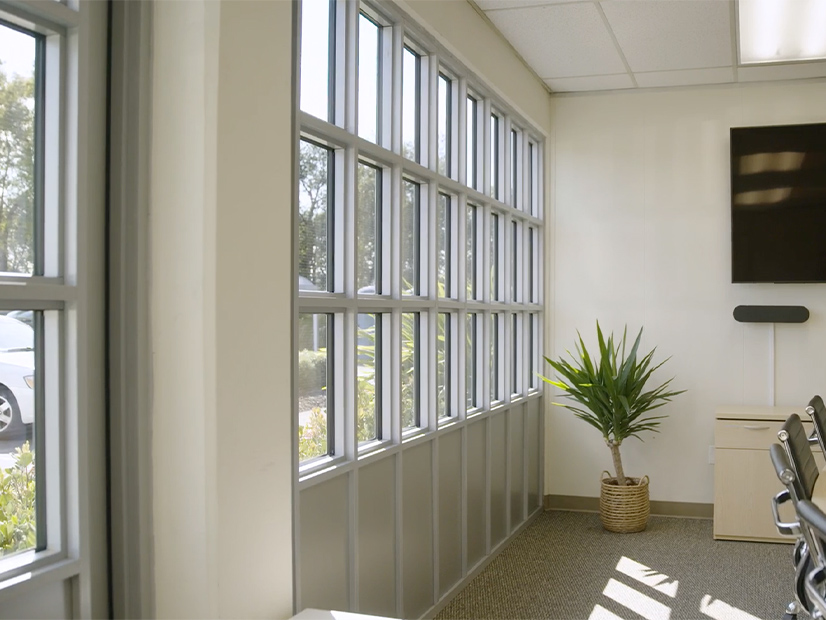
Minnesota-based Andersen Corp. and California startup Ubiquitous Energy have signed an agreement to develop and manufacture windows that double as solar power modules.
The companies pledged windows “without aesthetic compromises”; in other words, visible light will pass through the windows, which, judging by early versions developed entirely by Ubiquitous, will not visibly reveal their photovoltaic abilities.
The two companies announced their agreement the day after President Biden signed the Inflation Reduction Act, which will provide more funding to technologies aimed at fighting climate change with electrification replacing fossil-based technologies.
The breakthrough Ubiquitous claims to have made is based on patented technology pioneered by researchers at Michigan State University and the Massachusetts Institute of Technology. MSU has already installed glass produced by Ubiquitous.
In January, Ubiquitous revealed that Andersen was a leading investor in a $30 million funding round it concluded at the end of 2021, taking the total of investor research and development funding to $70 million.
The company’s technology produces power from ultraviolet and infrared light, allowing visible light to pass through the window. The two companies intend to manufacture the solar glass in the U.S.
“With our patented technology, Ubiquitous Energy has expanded what’s possible in photovoltaic technology. We’ve engineered our solar cells to selectively transmit visible light, what we see, while absorbing and converting invisible ultraviolet and infrared light into electricity,” the company announced on its website. “This makes our technology the first truly transparent solar technology, allowing windows to convert ambient light into useful electricity without impacting aesthetics or performance.”
Ubiquitous in April announced it had demonstrated the technical ability to uniformly coat glass as wide as 1.5 meters, the first step toward its production line target to manufacture high volumes of 1.5-by-3-meter floor-to-ceiling solar windows.
The company also said its technology does not use hazardous materials, but “earth-abundant materials” instead. Its coating technology follows “standard industry coating practices, and its windows will meet ‘Low E thermal performance’ standards,” it said.
Brandon Berg, senior vice president of research and development at Andersen, described the agreement with Ubiquitous as “a powerful opportunity to leverage our industry leadership, product development expertise and manufacturing capabilities.”
Newly elected Ubiquitous CEO Susan Stone said the two companies “have a shared goal of changing the way the world uses solar power and positively impacting the environment in a big way without compromising aesthetics or function.”


